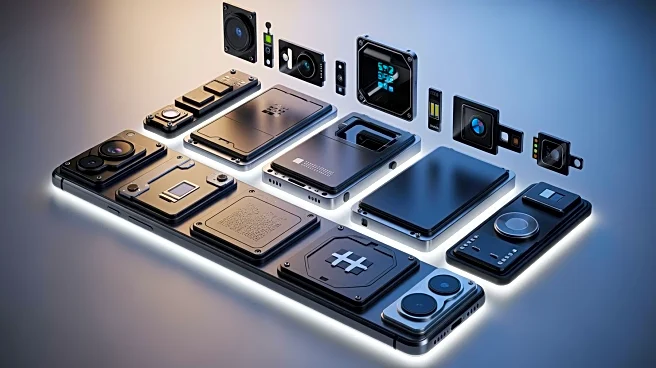What's Happening?
Smartphone manufacturers are being urged to consider modular components in their future product designs as a response to increasing right-to-repair legislation aimed at reducing e-waste. Emma Armstrong,
Sustainable Electronics Ambassador and Group Commercial Director at In2tec, highlights the environmental and economic benefits of modular technology. This approach allows for the easy disassembly, repair, replacement, and recycling of electronic components, which can significantly reduce the amount of e-waste generated. Modular smartphones, such as those produced by Fairphone and HMD, enable consumers to customize, repair, and upgrade their devices without purchasing new ones. This trend is gaining traction as more countries implement regulations requiring manufacturers to offer repair options for consumer electronics.
Why It's Important?
The push for modular components in smartphones is significant due to the growing environmental concerns associated with e-waste. Millions of tonnes of e-waste are improperly recycled, releasing harmful chemicals into the environment. By adopting modular designs, manufacturers can help mitigate these environmental impacts while also providing economic benefits. Consumers benefit from cost-effective customization and repair options, while manufacturers can still profit from selling upgrades. This shift could lead to a more sustainable electronics industry, aligning with global efforts to reduce waste and promote environmental responsibility.
What's Next?
As supply chains for electronic components become tighter and right-to-repair regulations expand, the electronics industry is expected to adapt to these changes. Manufacturers may need to redesign their products to comply with new legislation and consumer demand for sustainable options. The adoption of modular technology could become a standard practice, potentially leading to a significant reduction in e-waste and a more circular economy in the electronics sector.
Beyond the Headlines
The move towards modular components in electronics also raises ethical and cultural considerations. It challenges the current consumer culture of disposability and encourages a shift towards sustainability and responsibility. This change could influence consumer behavior, leading to increased demand for products that prioritize environmental impact and longevity over frequent upgrades.









